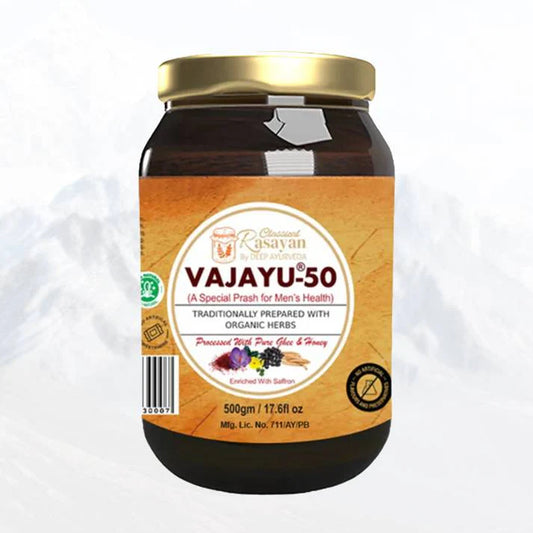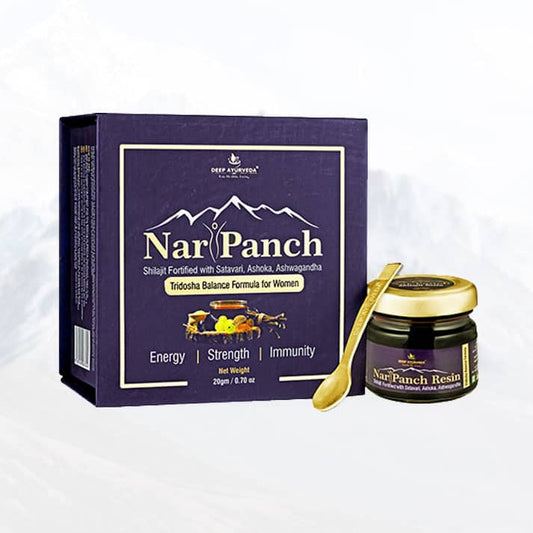A few decades back, depression and anxiety were thought to be the issues of the future. But now, they are among the most common issues in the field of mental health. According to the World Health Organization, more than 300 million people across the globe are suffering from depression, and anxiety disorders are as common. Anxiety and depression not only impact emotional well-being but also physical well-being, productivity, and social relationships.
Whereas contemporary medicine has an array of pharmaceutical and psychological therapeutic measures at its command, more and more individuals are opting for Ayurveda—India's traditional system of natural medicine—as a holistic and eco-friendly alternative. Both views are more accurately portrayed in this article since it emphasizes the potential of integration of ayurvedic remedies with Deep Ayurveda's herbal preparations such as Capsule Brahmi, Capsule Nervocare, Capsule Ashwagandha, and classical remedies such as Saraswatarisht."
Modern Concept of Anxiety and Depression
Anxiety and depression in present-day psychiatry are referred to as affective and mood disorders. They are co-morbid and come with common symptoms like
- Low mood or chronic sadness
- Restlessness or over-worrying
- Sleep disturbance
- Loss of interest or pleasure in activities
- Low energy and fatigue
- Difficulty concentrating
Causes and Risk Factors
There are multiple factors that come into play with these disorders, including
- Genetic predisposition
- Neurochemical imbalance (e.g., serotonin, dopamine)
- Hormonal changes
- Traumatic events
- Poor lifestyle habits (e.g., chronic sleep deprivation, poor diet, drug addiction)
Treatment in Contemporary Medicine
Treatment generally involves:
- Pharmacotherapy: Medications such as SSRIs and SNRIs, anxiolytics, and mood stabilizers.
- Psychotherapy: Cognitive Behavioral Therapy (CBT), speech therapy, and mindfulness-based therapies.
- Lifestyle Change: Exercise, sleeping habits regulation, and stress management skills.
Although these methods are advantageous to most, they can have side effects or not address the causative factors. This has prompted increasing interest in complementary and alternative systems such as Ayurveda.
Ayurvedic Perspective on Anxiety and Depression
Ayurveda regards mental well-being as the outcome of harmonious equilibrium of the body (Sharir), mind (Manas), and consciousness (Atma). Mental illness like depression and anxiety result due to disharmony in the Trigunas (Sattva, Rajas, Tamas) and the Tridoshas (Vata, Pitta, Kapha).
-
Anxiety (Chittodvega) is largely a Vata condition. Vata's overactivity and hyper-stability are responsible for fear, worry, and agitation.
- Depression (Vishada or Manoavasada) can be caused most commonly by Kapha imbalance and excess of Tamas in the nature of dullness, sluggishness, and inability to perform anything.
- Ayurvedic treatment will rectify the imbalance, strengthen the nervous system, and make the mind strong through herbs, diet, modification of life, purificatory therapies, and meditation.
Holistic Remedies for Anxiety and Depression by Deep Ayurveda
Deep Ayurveda uses traditional Ayurvedic knowledge combined with contemporary manufacturing techniques to provide effective and safe herbal medicines. Here's how their best-selling products promote mental health:
1. Capsule Brahmi (Bacopa Monnieri)
Type: Medhya Rasayana (brain tonic)
Brahmi is an ancient herb in Ayurveda to enhance mental clarity, brain function, and emotional stability. It soothes the mind, enhances memory, and alleviates anxiety.
Main Benefits:
- Reduces stress and anxiety
- Improves memory and concentration
-
Mild antidepressant
- Balances Vata and Pitta doshas
Dosage: 1-2 capsules twice a day after meals with lukewarm water or as prescribed by an Ayurvedic physician.
2. Capsule Ashwagandha (Withania Somnifera)
Category: Adaptogen, Rasayana
Ashwagandha is a significant adaptogen that protects the body against stress and emotional exhaustion. It strengthens the nervous system and promotes balance of hormones.
Key Benefits:
- Decreases cortisol levels (stress hormone)
- Enhances mood and resistance
- Increases energy and motivation
-
Improves quality sleep
Dosage: 1-2 capsules twice a day or as directed.
3. Capsule Nervocare (Polyherbal Formula)
Category: Nervine Tonic
Nervocare is a special Deep Ayurveda formula containing herbs such as Brahmi, Shankhpushpi, Jatamansi, and Tagar, which are meant to induce calmness of mind and emotional stability.
Key Benefits:
- Encourages nervous system health
- Relieves nervousness and irritability
- Relieves insomnia and mental tiredness
- Natural mood stabilizer
Dosage: 1-2 capsules twice a day or as advised by the doctor.
4. Saraswatarisht (Classical Ayurvedic Medicine)
Category: Medhya Rasayana, Classical Tonic
Saraswatarisht is a classical Ayurvedic medicine discussed in ancient medical texts, prepared from herbs such as Brahmi, Shatavari, Vidarikand, and Ashwagandha in a self-synthesized alcohol base, which increases its absorbability and efficacy.
Key Benefits:
- Increases mental clarity and mental ability
- Reduces anxiety, depression, and mental fatigue
- Improves speech, memory, and emotional balance
- Of greatest benefit for students, elderly patients, and patients with chronic stress
Dosage: 10–15 ml twice daily with an equal amount of water after meals.
Ayurveda with Modern Methods
Ayurveda should not be opposing modern medicine. In fact, using both can result in better outcomes:
- Utilize CBT or counseling along with Ayurvedic herbal supplements for greater emotional control.
- Combine yoga and pranayama with herbal supplements to increase mental calmness and energy.
- Have a diet that soothing inflamed doshas (i.e., Vata-pacifying diet during anxiety).
Ayurveda + Contemporary Diet and Lifestyle Tips
- Adhere to a Routine: A routine provides stability, specifically useful to help manage Vata.
- Ate healthy warm meal: do not consume caffeine, cold, or junk food. Use warm soup, ghee, and herb tea.
- Pranayama and Meditation: Deep breathing and being aware transcend mental restlessness.
- Digital Detox: Maintain screen time to a minimum to prevent overstimulation and sleep disorders.
-
Sleep Hygiene: Go to bed early by 10 PM and sleep for at least 7–8 hours well.
Anxiety and depression are multi-factorial, complex issues that need a holistic and compassionate approach. Instant relief is provided by contemporary medicine, but Ayurveda provides a deep healing that targets the cause of the imbalance and not the symptom. Formulations such as Deep Ayurveda's Capsule Brahmi, Capsule Ashwagandha, Capsule Nervocare, and Saraswatarisht provide a natural, effective, and sustainable solution to mental health.
Combining ancient wisdom with modern consciousness not only optimizes therapeutic efficacy but allows individuals to regain control of their emotional health—holistically, kindly, and safely.







